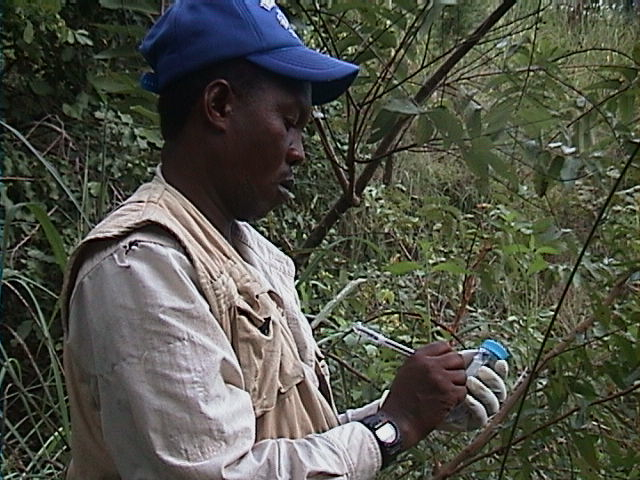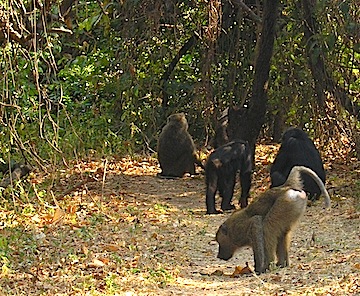Researchers find that chimps, like humans, have microbial “ecosystems” in their guts.
You're outnumbered.
You may like to think of yourself as just one person, but most of the cells in your body don't belong to you. “Bacteria cells outnumber human cells by about 10 to 1 in our bodies, and those bacteria play significant roles in digestion, health and disease,” says Michael Wilson, an assistant professor of anthropology with a joint appointment in ecology, evolution and behavior.

“Some have tried to associate them with dietary or with geographic factors, but for various reasons, these assignments do not hold up across populations, so their origins and functions are still not known,” says Howard Ochman, a professor of ecology and evolutionary biology at Yale University.
One of the many things we don't know about enterotypes is how long they have been around. Are enterotypes ancient or are they the result of our recent shift to a diet of processed food? To answer this question, Wilson, Ochman and several other researchers collaborated on a study to see if they could find enterotypes in our nearest living relative, the chimpanzee.
They decided to study a population of chimpanzees living in Tanzania. To learn about what kinds of bacteria live in chimpanzee intestines, the first thing the researchers needed to do was collect chimpanzee feces. “All you have to do is follow a chimpanzee around until it poops, and then wait for the chimp to leave so you can move in and scoop up a bit, using a flat stick, like a popsicle stick, to put the sample into a tube,” says Wilson. Later they'd take the tubes back to camp and freeze them, then ship them back to the United States for analysis.
The results in a nutshell: chimpanzees do have enterotypes. The researchers found three distinct enterotypes in the chimpanzees' guts, like in humans, though the types are dominated by different kinds of bacteria. The fact that both chimpanzees and humans have enterotypes suggests that enterotypes existed back in the days when these species shared a common ancestor. Why we have them, though, is still a mystery
– Margaret Taylor
STUDY: Chimpanzees and humans harbour compositionally similar gut enterotypes

Field assistant Selemani Yahaya with a sample collection tube.

A baboon engaged in its own investigation of chimpanzee fecal samples